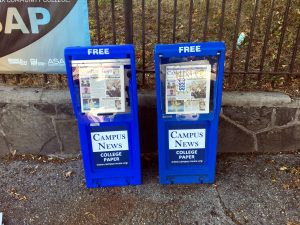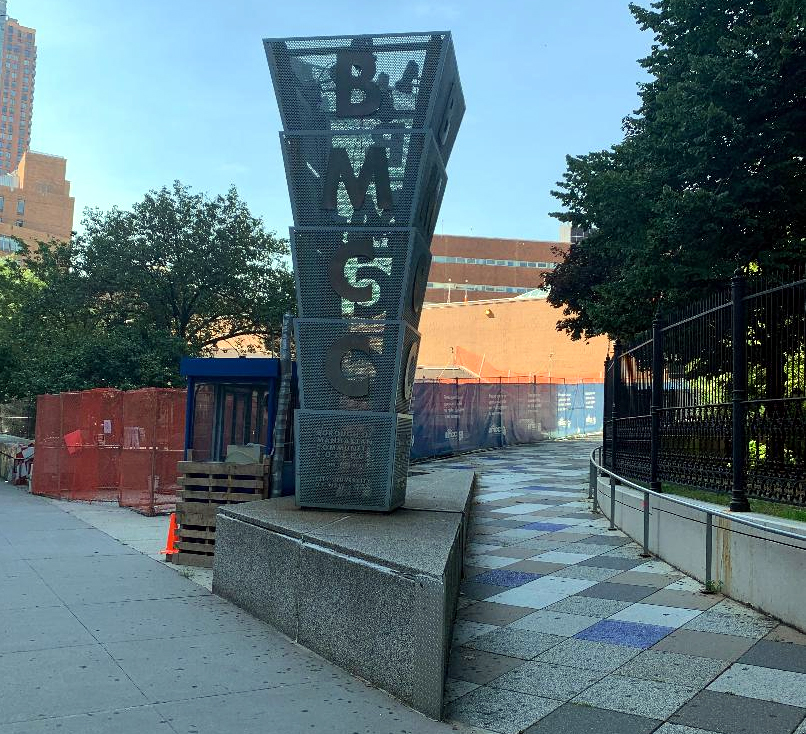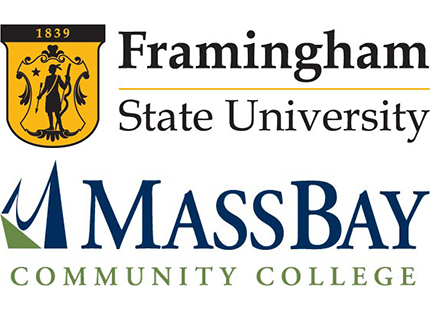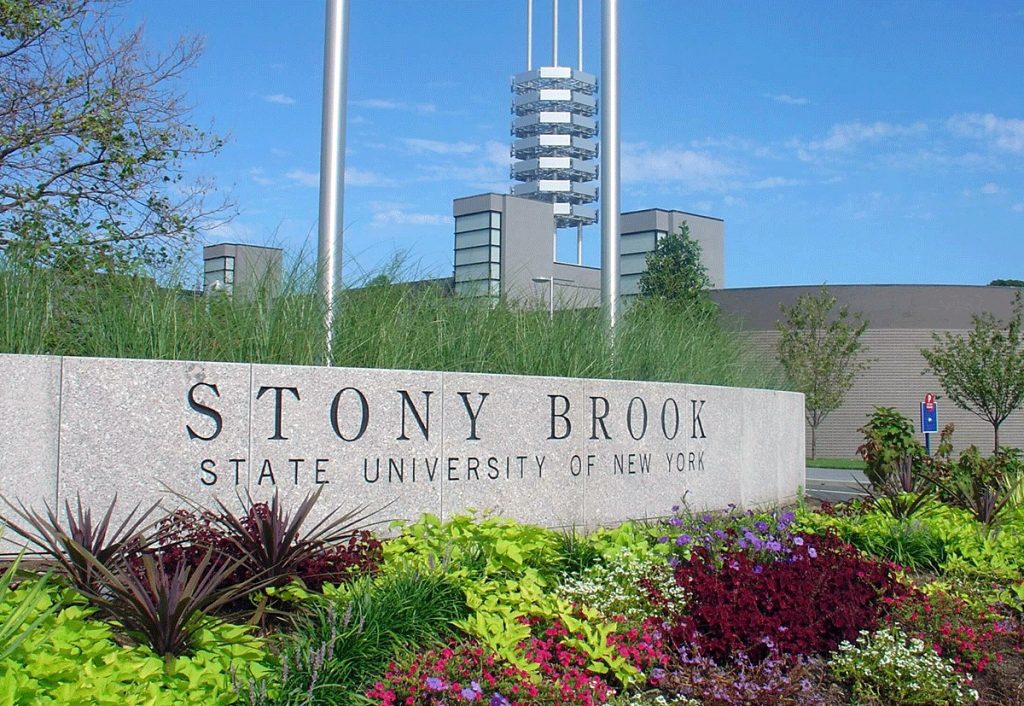The campuses of The City University of New York, the nation’s largest urban public university system, will be fully open for the first time in 17 months to welcome excited but cautious students back for the start of the fall semester.
Approximately 45 percent of the nearly 50,000 course sections across CUNY’s 25 colleges and campuses will be conveyed in a hybrid or in-person format, while some 55 percent will be delivered online.
Students are voicing excitement about the resumption of in-person classes and campus life, as well as caution in the face of the ongoing pandemic. Anyone entering a CUNY facility for any reason will need to be fully vaccinated, or show proof of a negative COVID-19 PCR test taken within the previous seven days at a CUNY testing site. Monday’s FDA approval of the Pfizer vaccine triggered a 45-day final deadline for students to be fully vaccinated, or risk being unable to complete their courses.
“After more than a year of remote learning, I am thrilled to welcome the CUNY community back to an increasingly in-person and more traditional fall semester,” said Chancellor Félix V. Matos Rodríguez. “A large part of the CUNY experience is the sense of belonging and togetherness we draw from our lives on campus. I share our students’ excitement and fully understand their caution. The menu of offerings, whether remote, in-person or hybrid, will enable our students to be fully engaged academically and pursue their education and career goals. I strongly urge all of our students, faculty and staff to get vaccinated. Getting vaccinated remains the single most important thing we can do, individually and collectively, to continue moving New York’s recovery forward.”
‘Can’t Stop CUNY’
Many of CUNY’s students reside in the communities that were hit hardest by the health and economic crises ushered by the pandemic, and their stories of resilience and fortitude illuminate the University’s increasing emphasis on in-person learning this Fall. To ease some of their burdens, CUNY is forgiving $125 million of outstanding student debt to the University and breaking barriers to public education for thousands of New Yorkers.

The determination to rebuild and sustain a climate that will offer a more familiar look, both in the classroom and on campus, is also reflected in the tagline and theme for the new academic year: Can’t Stop CUNY.
CUNY student Billing Chen, who earned an associate degree in chemistry at Queensborough Community College in 2020, won a highly competitive Jack Kent Cooke Scholarship and used it to transfer to Hunter College, is excited by the opportunity to attend classes for the first time on the Upper East Side campus.
“I can’t wait to go back to school in person, to participate with my classmates and the professors,” said Chen, who plans to go to dental school after graduation next spring. “Online, if you don’t understand something it’s kind of hard to type your questions. I also like to have study groups, two or three of us who can do homework or study together, and I love to visit professors in office hours.”
Olawale Oladapo, an engineering student at Hostos Community College, voiced sentiments common among many CUNY students when he described being excited to be back on campus but also unsure of what to expect.
“I think everyone is going to have their guard up and some people will be super scared of COVID because they’ve lost loved ones,” said Oladapo. “The first day of school is never comfortable and now adding COVID to it, I think it will be a new normal.”
For more than a year, the University has been preparing to welcome students back to a more in-person fall with initiatives to ensure that classes are delivered in a variety of modalities while protecting the safety of all students, faculty and staff.
These efforts included the launch five months ago of a vaccination campaign, the establishment of a University-wide COVID-19 testing program and the rigorous inspection of ventilation systems and other essential safety features in the classrooms, offices, laboratories, libraries and other spaces that will be in use. The University has reviewed and approved comprehensive reopening plans for each CUNY campus and Central Office location, crafted in accordance with city, state and federal guidance.
Chancellor Matos Rodríguez will visit four colleges on Wednesday to greet students, faculty and staff, visit classrooms, a testing site and a vaccination pop-up van. Here are some of the steps taken, and policies enacted, to facilitate the reopening of CUNY campuses while ensuring the health and safety of the entire University community:
- Promoting vaccination as the best weapon - In March, the University launched a #VaxUpCUNY campaign to ease vaccine anxiety and hesitancy, especially in communities of color, and to encourage all students, faculty and staff to get their shots.
- Vaccination mandate - The Board of Trustees in July approved a policy to make vaccination mandatory for all students taking in-person or hybrid classes, pending full FDA approval of a vaccine by the FDA which happened this week. Students have to provide proof of full vaccination by September 27, or risk being unable to complete their courses.
- Universitywide testing program - Students who are unvaccinated through September 27, and faculty and staff who do not provide proof of their vaccination, will be required to show proof of a negative COVID-19 test taken no more than seven days before they visit a campus or University office for any reason at a CUNY testing site. After a rigorous search, CUNY selected Applied DNA Clinical Labs LLC to provide on-site testing throughout the University for all members of the CUNY community who are still unvaccinated at 18 testing sites on campuses in all five boroughs, as well as at two CUNY Central locations.
- Returning to work - Staff began a half-time return to offices and work sites on August 16, working rotating schedules. Most students and faculty are returning this week. For the time being, everyone, regardless of vaccination status, must wear a face mask inside all CUNY campuses and offices and outdoors when unable to maintain physical distance from others.
- Healthy facilities - CUNY will maintain many approaches adopted during the pandemic to limit the spread of communicable disease. This includes adhering to a high standard of cleanliness in our buildings by using cleaning logs, ensuring spaces are cleaned multiple times per day, and providing necessary PPE and hygiene stations. We will also continue to follow social distancing regulations by displaying maximum occupancy signs and social distancing markers.
The academic year for 21 of CUNY’s 25 colleges begins today; for the CUNY School of Law, it started on Aug. 13; and three CUNY community colleges, Guttman, LaGuardia and Kingsborough, will start on Sept. 9.
HyFlex Classes
CUNY has also developed means to leverage the positive aspects of the vastly expanded online instructional footprint necessitated by the pandemic to expand access, enhance learning, and accelerate success by launching a pilot that will introduce “HyFlex” courses to CUNY. A HyFlex course gives students the ability to choose to attend class sessions either face-to-face or online (e.g., synchronous, asynchronous). By giving students more options to engage in a specific course from session to session, CUNY is taking additional steps towards becoming a more student-centered University.

Fourteen CUNY colleges are currently collaborating to implement HyFlex courses beginning this fall. More than 130 volunteer faculty are in the final weeks of a seminar developed in a partnership between the School of Professional Studies, Lehman College, and other college partners. As part of this effort, they are being provided training, tools and templates that will enable them to adequately assess students’ progress in a HyFlex environment. Additionally, a shared resources site is currently being developed to highlight promising practices and share information about the HyFlex pilot.
Innovative Support for CUNY Students
CUNY continues to intensify initiatives in career engagement, pursuing channels to guide students into well-paying career paths that allow them to make meaningful contributions to the region’s economic recovery.
- To support students with financial relief, the newly created CUNY Comeback Program is in the process of eliminating up to $125 million in unpaid debt for at least 50,000 students who attended CUNY and suffered financial hardships during the COVID-19 pandemic.
- Building on the success of the CUNY Comeback Program, Chancellor Matos Rodríguez said he will suspend the long-held practice of withholding transcripts for students and graduates who owe the University unpaid tuition and fees. He additionally directed all CUNY colleges to lift financial holds on approximately 74,000 students, clearing the way for them to register for the Fall semester even if they owe outstanding tuition and fee balances to CUNY.
- The University recently announced the creation of CUNY Futures in Finance, a comprehensive workforce development initiative between Bloomberg LP, Centerbridge Partners and Goldman Sachs that will provide CUNY students with training, mentorship and access to careers in the financial services industry.
- A partnership with the Blackstone Charitable Foundation will also give students on nine campuses access to Blackstone LaunchPad, a skill-building initiative that will connect them with networks, mentors and professional development opportunities to support their entrepreneurial endeavors and career ambitions.
New Leadership
The Fall 2021 semester will mark the first time that all 11 CUNY college presidents and three interim leaders who have been named by Chancellor Matos Rodríguez will lead their campuses in person. The highly diverse and experienced group includes CUNY’s first two Asian-American presidents, S. David Wu, who was appointed in February 2020 at the last in-person BOT meeting before the pandemic, and Queens College President Frank Wu; Daisy Cocco De Filippis, the first Dominican woman to lead Hostos Community College; and Patricia Ramsey, the first woman to serve as president of Medgar Evers College.
Unparalleled Challenges
COVID-19 confronted the nation’s largest urban public university system with unprecedented challenges — but also inspired extraordinary resourcefulness and resilience. From the pandemic’s early days, CUNY’s community of more than 300,000 undergraduate and graduate students, faculty, staff and leaders pursued its mission of access and opportunity in the face of profound national crisis and uncertainty.
Within a week of New York State’s directive to close campuses, in March 2020, CUNY faculty had converted almost all courses for delivery in a distance learning modality. When that quick transition exposed grave inequities that made it impossible for many CUNY students to participate, the Chancellor called a weeklong timeout, a recalibration period for educational equity. CUNY fast-tracked the purchase of thousands of laptops, tablets and personal hotspots and devised plans to safely distribute the hardware to students in need.
In April 2020, CUNY established the Chancellor’s Emergency Relief Fund to provide urgent aid to students who faced employment loss and other financial hardship. The fund has raised more than $10 million to date and helped more than 12,000 students weather the economic impact of the pandemic, including undocumented and international students who were initially excluded from receiving federal aid.
Every decision made in the ensuing months of the pandemic has been guided by the dual imperatives of protecting the health and safety of every member of the CUNY community while allowing students to maintain their academic momentum.








Facebook Comments